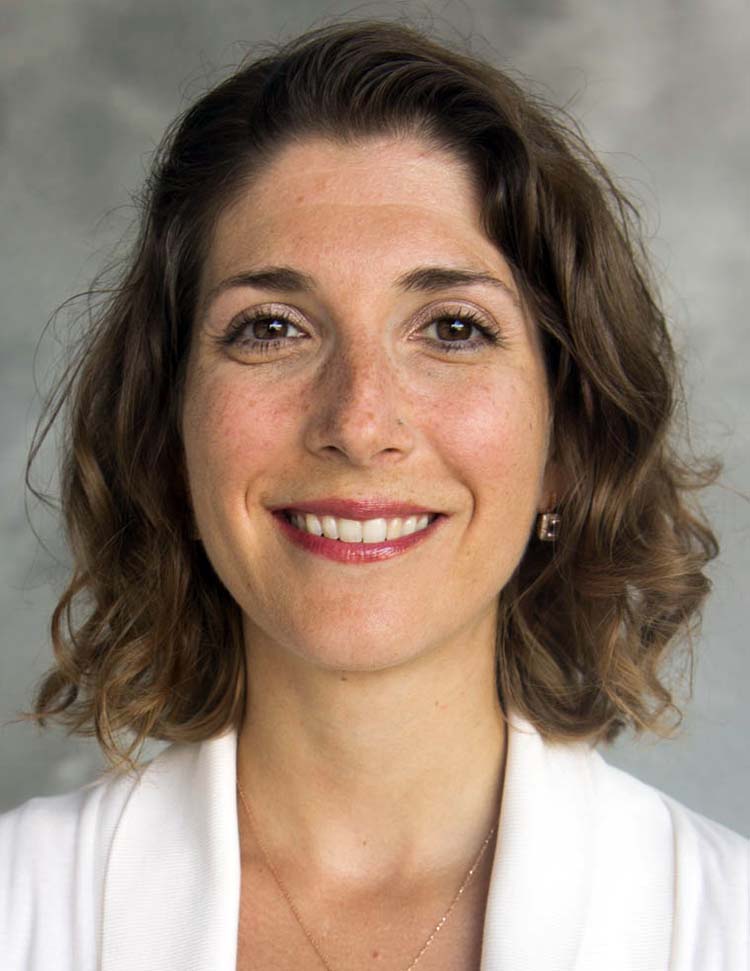USC Chan welcomes Rebecca Aldrich to faculty
September 26, 2018
Alumna’s research expertise includes occupational perspectives on marginalized populations.
Diversity, Access, Equity Faculty Research
By Mike McNulty
It’s been a decade since the September 2008 Wall Street bankruptcies that symbolically marked the start of America’s Great Recession. Yet while today’s jobless claims have fallen to once-in-a-generation lows, according to the Bureau of Labor Statistics 1.3 million Americans are still experiencing long-term unemployment, defined as joblessness for 27 weeks or longer.
USC Chan’s newest faculty member, Rebecca Aldrich BS ’05, MA ’06, has spent the last decade using occupational science to shed light on the lives of people who, for any number of reasons including unemployment status, have been pushed to society’s margins.
“In the U.S., if you are working full-time, you are considered to be occupying a “normal” social position,” Aldrich says. “But if you’re unemployed, you have been marginalized because you’re not conforming to the social norms of being an adult who works and who provides for themself and for a family.”
Aldrich’s research sees through the lens of peoples’ everyday activities in order to better understand what everyday life is like at the periphery. For example, without steady employment and a paycheck, daily routines often revolve around “resource seeking” activities — identifying, negotiating and utilizing social services, programs and subsidies like food pantries.
According to Aldrich, occupation-based research paints a picture of people’s everyday experiences that no other discipline can.
“Occupational science brings a perspective that simultaneously reminds us to be holistic and not reduce problems to a single factor, and to make an issue concrete by bringing it down to the everyday level,” she says. “So it’s not just about getting someone housing, or work, or supportive resources, but about how people access and engage in occupations that weave those things together.”
Coming back to campus
Aldrich, who was raised in Fresno, Calif., discovered occupational therapy literally by accident. The summer before she first arrived at USC as an undergraduate student, her brother sustained a severe broken leg and needed occupational therapy during his recovery. Once at USC, Aldrich enrolled in “OT 220: Introduction to Occupational Therapy” to learn more, and soon discovered what would become her professional calling.
“The ideas about occupation and health and humanity seemed so compelling,” says Aldrich, whose peer-reviewed articles have appeared in the Journal of Occupational Science, the American Journal of Occupational Therapy and the British Journal of Occupational Therapy. “I could ask the big questions and I could still be thinking about health and well-being.”
After earning her PhD degree in occupational science at the University of North Carolina, Chapel Hill and seven years as a faculty member at Saint Louis University, Aldrich is back on USC’s campus to grapple with questions that loom large indeed. Among them are USC Provost Michael Quick’s “Wicked Problems” initiative, a university-wide drive to tackle today’s most intractable, complex and persistent problems including poverty, cancer, aging and dementia. Aldrich’s research intersects with a number of these wicked problems, including homelessness, which makes coming back to alma mater a seamless move for the Trojan alumna.
“With USC Chan’s commitment to developing occupational science, and because I’m so squarely situated in the O.S. arena, USC provides a great opportunity for developing my work.”
Philosophy for the real world
In addition to her research about living through situations of social marginalization, Aldrich’s research portfolio focuses on two other major themes.
First, her scholarship of teaching and learning focuses on how concepts about occupation are taught around the world, and how that material is subsequently learned, critiqued and synthesized by students.
Secondly, she is interested in the theoretical and philosophical foundations of occupational science and occupational therapy, especially as they relate to the writings of educator and philosopher John Dewey.
As she begins the next chapter of her academic career at USC Chan, Aldrich reaffirms the pragmatic value of Deweyan approaches — with deep-seated beliefs in occupation’s capacity for nurturing freedom, equality, growth and justice in social relationships — to contemporary occupational science research.
“Dewey didn’t want to be an armchair philosopher,” Aldrich says. “He wanted to think about real-world issues and ways to consider them that would make those issues resolvable.”
⋯
Next by tag Diversity, Access, Equity ⟩ Faculty ⟩ Research ⟩






